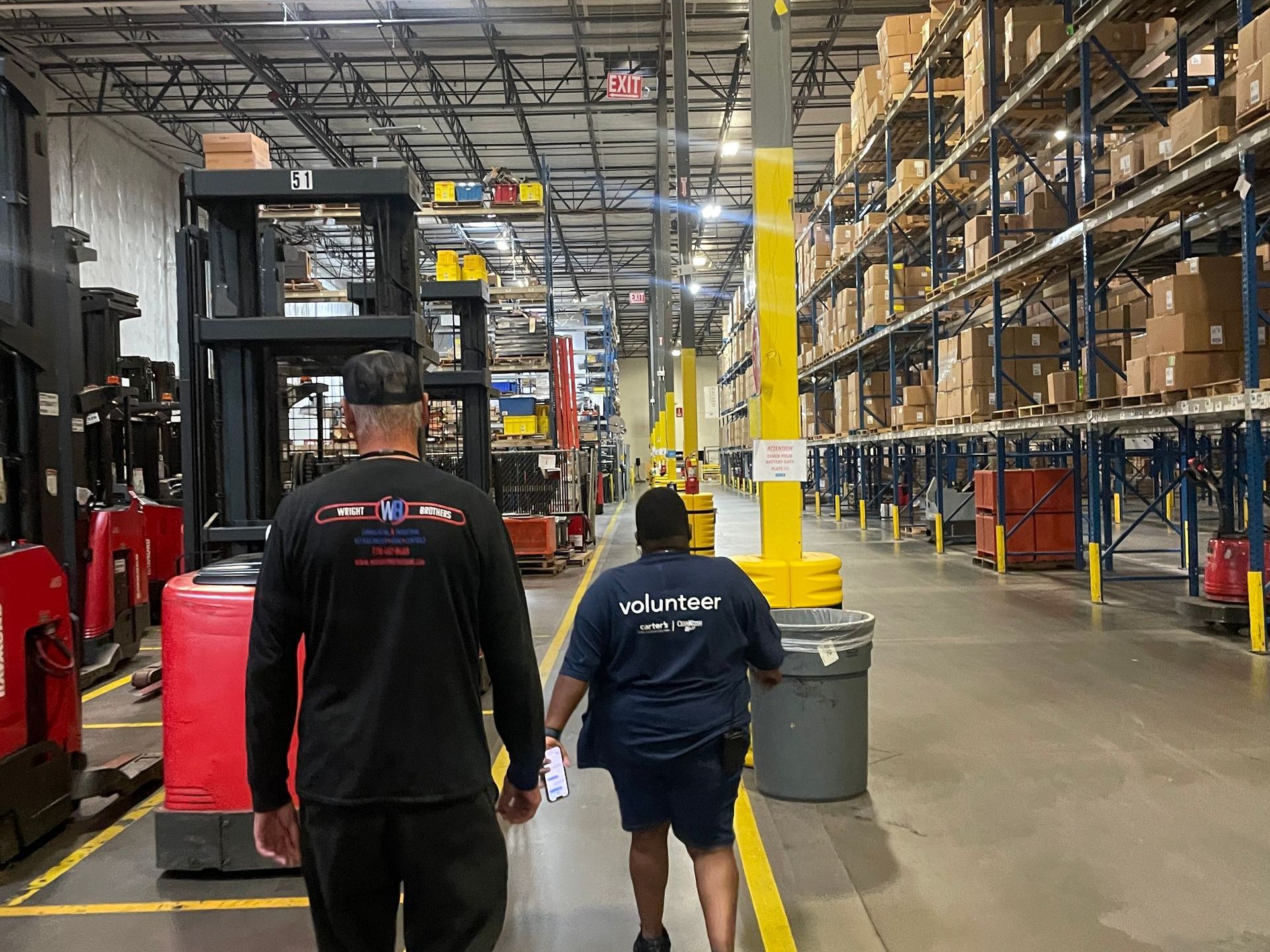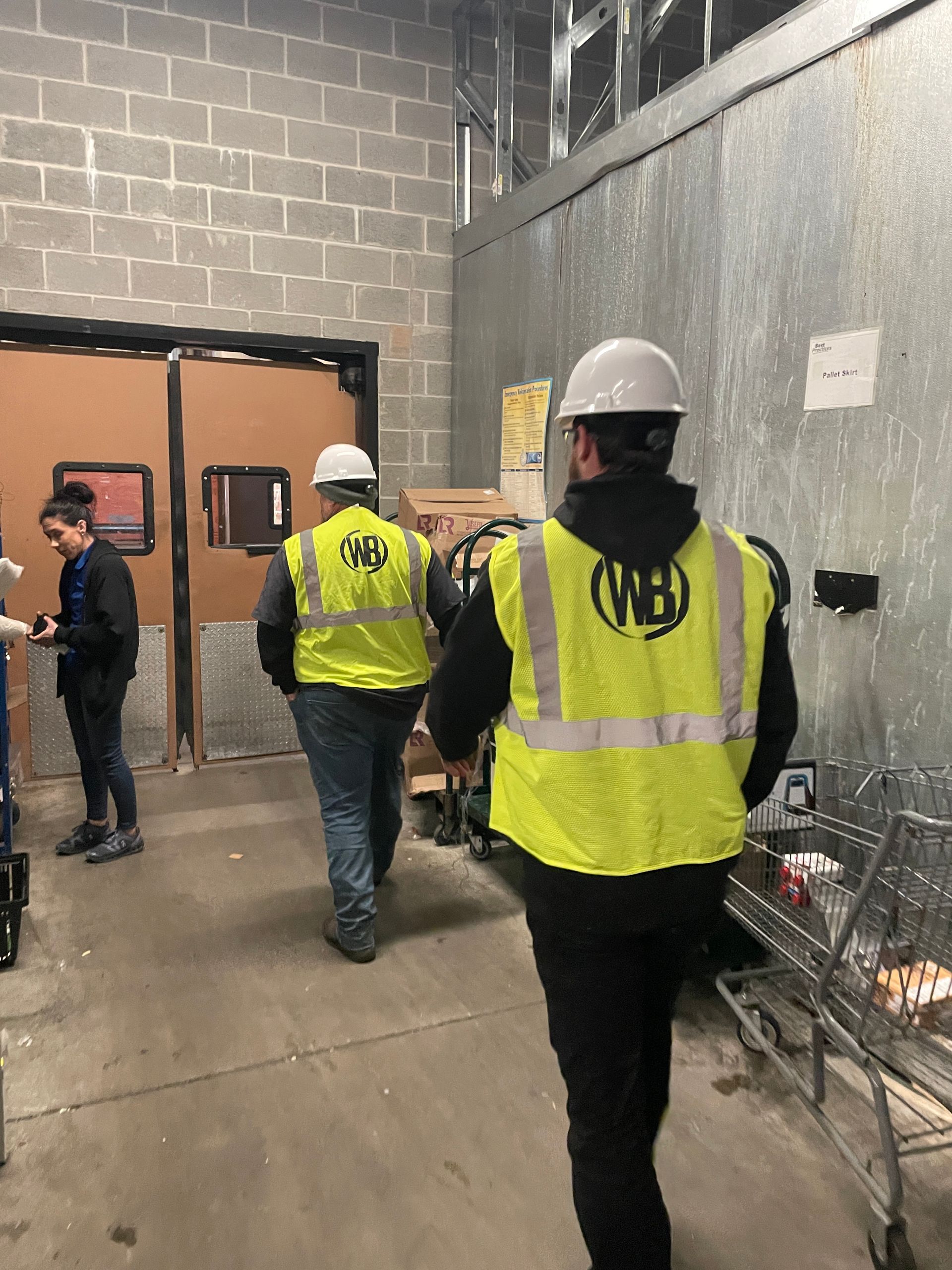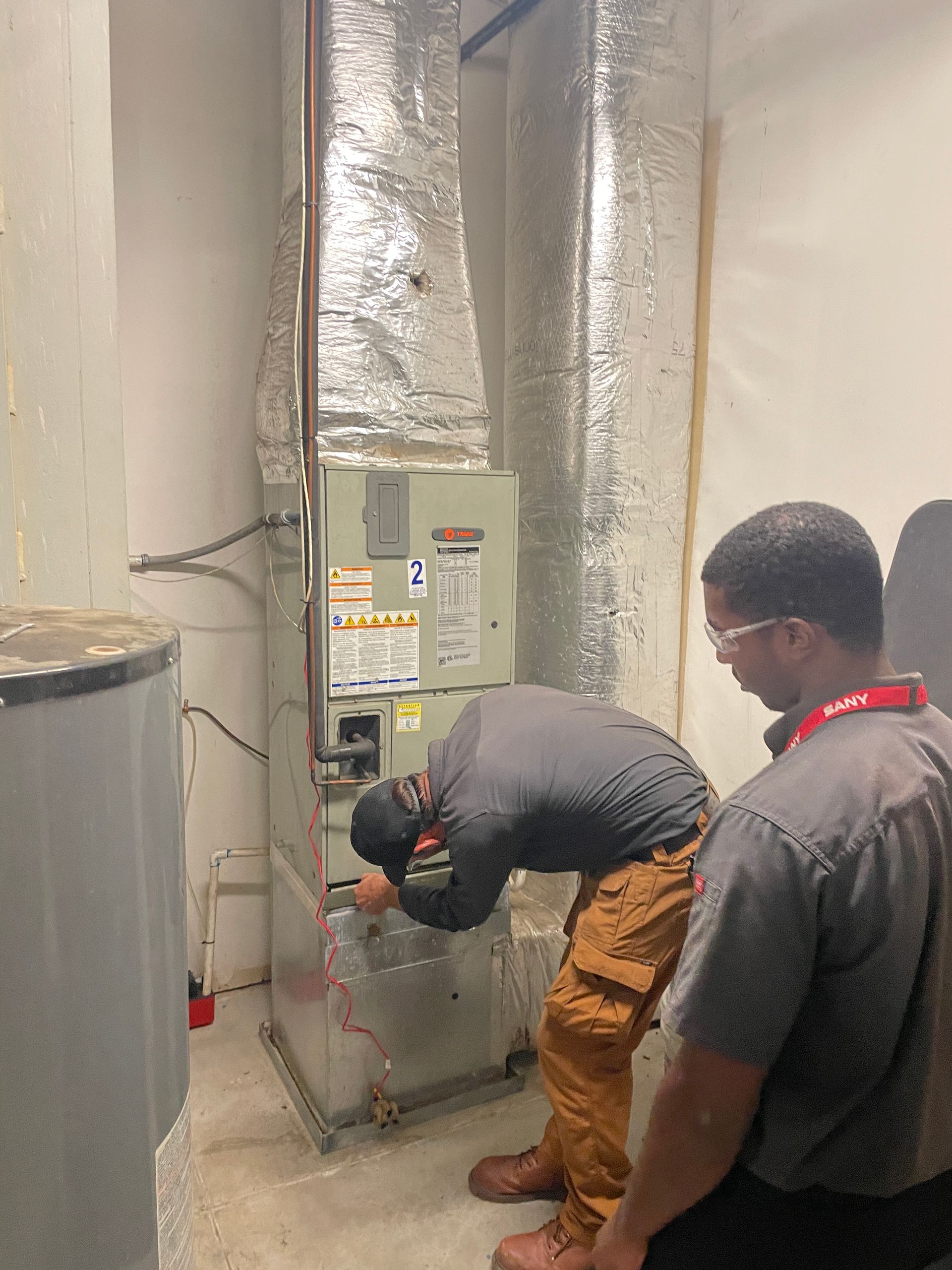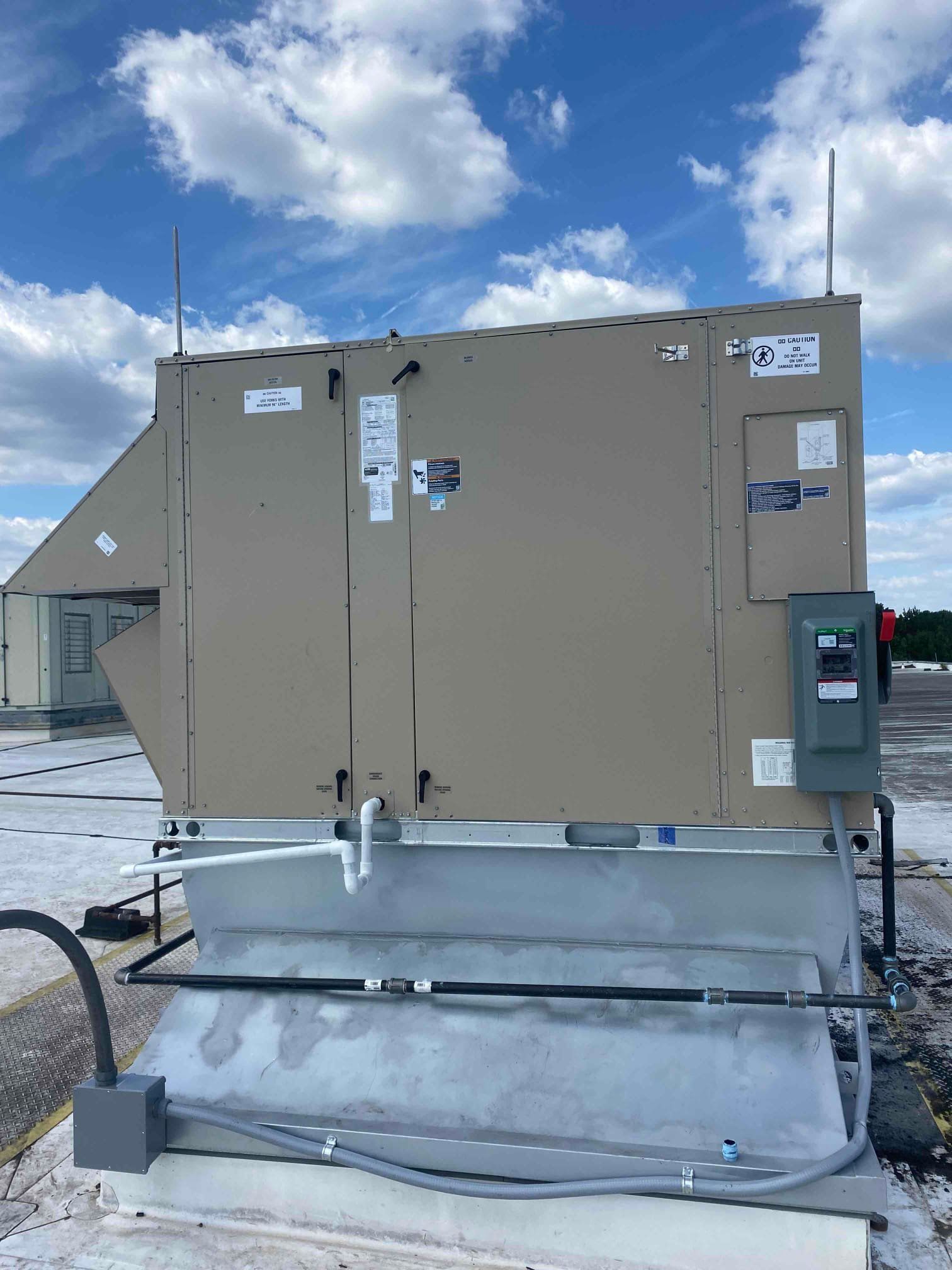Commercial Maintenance That Goes Beyond Filter Changes
There’s a big difference between checking a thermostat and actually maintaining a commercial HVAC system. At Wright Brothers, we don’t just show up with a filter and a clipboard. Our maintenance crews are trained to service complex systems across commercial and industrial environments, including rooftop units, multi-zone VRFs, air handlers, make-up air systems, ERVs, and ductless mini-splits.
Our process begins with a comprehensive system evaluation during each visit. That includes:
- Inspecting condenser and evaporator coils for dirt, damage, or obstruction
- Testing refrigerant pressures to detect leaks or imbalances
- Checking compressor function, electrical contactors, relays, and capacitors for wear
- Cleaning and replacing filters with low-restriction, MERV-rated materials
- Verifying blower motor operation, belt condition, and airflow levels
- Examining all safety and control sequences, including economizer functions and remote system access
By treating every visit as a diagnostic opportunity — not a formality — we help our clients catch small issues before they trigger major repairs, all while keeping documentation up to date for warranty, compliance, or internal tracking purposes.
Tailored Maintenance Schedules for Every Commercial Facility
No two buildings are alike — and neither are their HVAC service requirements. Whether you’re managing an office complex, a municipal facility, a distribution warehouse, or a high-occupancy multi-use property, your systems are under different loads, schedules, and operational demands.
That’s why we develop custom HVAC maintenance programs based on your system configuration, seasonal usage patterns, and tenant expectations. Some clients require quarterly inspections with full coil cleaning and airflow testing. Others need targeted pre-season service on rooftop systems to get ahead of summer heat or winter demand spikes. We also support multi-building clients with staggered schedules to reduce operational disruption.
Our crews are dispatched regionally to ensure you see the same faces and receive consistent service over time. And each visit is logged in our service system, so you’ll always have access to complete maintenance records and insight into emerging system concerns.







